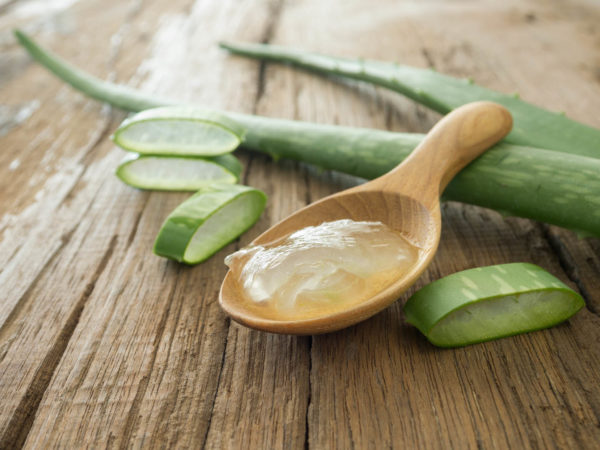Sun Poisoning: No Fun in the Sun?
I was recently diagnosed with polymorphic light eruption. Can you suggest natural remedies to help prevent or lessen my breakouts?
Andrew Weil, M.D. | May 14, 2009

Polymorphous light eruption is a medical term for sun poisoning and means that you’re super-sensitive to the ultraviolet rays in sunlight. Exposure brings on pimples or blisters that appear on the skin one to four days after you’ve soaked up some rays and can last up to two weeks. With severe sunburn you’re likely to feel really sick, with more dramatic symptoms like nausea, vomiting, fever, chills, and headache. A bad burn can also lead to skin infections that require medical treatment.
Almost everyone has experienced sunburn, but if your skin is light sensitive, this can happen within as little as 20 minutes in the sun. To help relieve the "burning" when this happens, apply cold compresses – a washcloth soaked in cold water should do the trick. Over-the-counter corticosteroid creams probably won’t provide any better relief, so you might as well save your money on sun poisoning treatment.
These ultra-sensitive reactions to sunlight can be worsened if you’re taking some medications, including certain antibiotics, or herbs such as St. John’s wort. Photosensitivity reactions to polymorphous light eruption can also stem from the interaction of the sun’s rays with perfumes, soaps, and other substances on your skin. More seriously, a photosensitivity reaction sometimes can be the first sign of systemic lupus erythematosus, an autoimmune disease.
For the light-sensitive, the simplest way to avoid problems is to stay out of the sun, particularly from about 10 a.m. to 2 p.m., from April through September to avoid sun poisoning. When you can’t avoid the sun, be sure to use a sunblock with an SPF of 15 or higher. Apply it at least 20 minutes before you go outdoors, and remember to take it with you and put more on: use about an ounce each time and be sure to reapply every two hours.
When you do develop a reaction to the sun, I suggest using topical aloe vera as a treatment for sun poisoning and to soothe your skin. You also might take an herbal anti-inflammatory and fish oil (2-3 grams a day) as an additional means of minimizing inflammation. I also recommend following my anti-inflammatory diet. And you might try hypnotherapy, which can be very effective in treating skin conditions and may help change your reaction to sunlight.
Andrew Weil, M.D.










